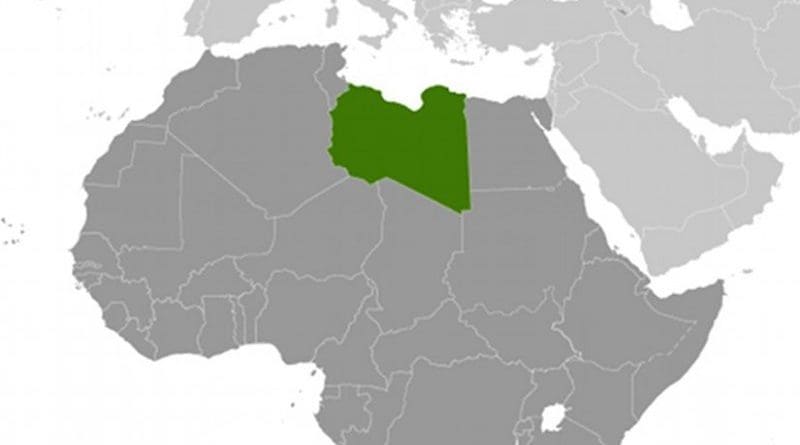Intelligence Shows No Planning For Benghazi Consulate Attack – OpEd
By Paul Woodward - War in Context
ABC News reports: The latest intelligence assessment of the attack on the U.S. diplomatic mission in Benghazi indicates there was little if any pre-planning for it and that it was in part an opportunistic response to the protests at the U.S. Embassy in Cairo.
Ambassador Chris Stevens and three other Americans were killed in the attack, which has become a political hot potato in the presidential campaign with questions over when the Obama administration called the attack an act of terrorism.
“Right now, there isn’t any intelligence that the attackers pre-planned their assault days or weeks in advance,” said a U.S. intelligence official. “The bulk of available information supports the early assessment that the attackers launched their assault opportunistically after they learned about the violence at the U.S. Embassy in Cairo.” But the official added that “no one is ruling out that some of the attackers may have aspired to attack the U.S. in Benghazi.”
Republican lawmakers have seized on U.S. Ambassador to the U.N. Susan Rice’s comments on Sunday talk shows days on September 16 attributing the deadly Benghazi attack to spontaneous protests against an anti-Muslim film made in the U.S. that had been posted on the Internet. As more information emerged they pointed to the use of mortars and RPG’s in the attack as indicating it was not a spontaneous protest as the Obama administration had claimed, but an act of terrorism. [Continue reading…]
The boundary between ‘planned’ and ‘spontaneous’ is pretty fuzzy.
The New York Times has reported: “Benghazi militia leaders who know Ansar al-Shariah say it was capable of carrying out the attack by itself with only a few hours’ planning, and as recently as June one of its leaders, [Mohammed Ali] Zahawi, declared that it could destroy the American Mission.”
The same report also said:
Most of the attackers made no effort to hide their faces or identities, and during the assault some acknowledged to a Libyan journalist working for The New York Times that they belonged to the group. And their attack drew a crowd, some of whom cheered them on, some of whom just gawked, and some of whom later looted the compound.
The fighters said at the time that they were moved to act because of the video [Innocence of Muslims], which had first gained attention across the region after a protest in Egypt that day. The assailants approvingly recalled a 2006 assault by local Islamists that had destroyed an Italian diplomatic mission in Benghazi over a perceived insult to the prophet. In June the group staged a similar attack against the Tunisian Consulate over a different film, according to the Congressional testimony of the American security chief at the time, Eric A. Nordstrom.
For many Americans, the definition of terrorism is very broad. If Americans get attacked or killed by Muslims, it’s terrorism. The U.S. government also has its own legal definition of terrorism, but if the term is to retain any meaning at all, a distinction needs to be made between a violent protest and an act of terrorism.
The identities of the participants doesn’t determine whether an act of violence can be understood as an act of terrorism. If a few Salafists conduct an armed robbery of a store in Benghazi, even though they might have extreme views, it’s still just a robbery. Likewise, identifying the consulate’s assailants as members of Ansar al-Shariah does not in and of itself make the attack an act of terrorism — even though Americans died.
Even the fact that the attack involved the use of RPGs and mortars does not necessarily make this an act of terrorism. No doubt everyone in Benghazi knows where the U.S. consulate is located and if an Ansar al-Shariah leader had already been bragging that he could destroy the facility, it would hardly be surprising if a few of his followers had already figured out some of the logistics.
Terrorism is above all a macabre form of political theater. Acts of violence are designed to portray state power as impotent. The terrorists’ very limited power is concentrated into a dramatic event, which is why explosions serve such a purpose much more often than battles. From this perspective, the use of RPGs and mortars may say much more about the current state of Libya than the designs of the attackers.
Protest on the other hand is a participatory activity where the focus is more on the engagement than the outcome.
Did the Benghazi attackers/protesters have the intent to burn down the building? Probably. Did they hope to kill the U.S. ambassador? My guess is: probably not. In which case, in spite of the ongoing political debate this has stirred up in the U.S. presidential race, the contexts in which the attack should be placed are: 1) the fragile security state in a country that has yet to establish effective governance — those who claim Libya should already be much more stable just a year after Gaddafi’s death are either being naive or disingenuous, and 2) the political flux that is dramatically reshaping the whole region and within which power is being contested at many levels.
Or, to put it another way, the Americans who died in Benghazi happened to be in the wrong place at the wrong time.

